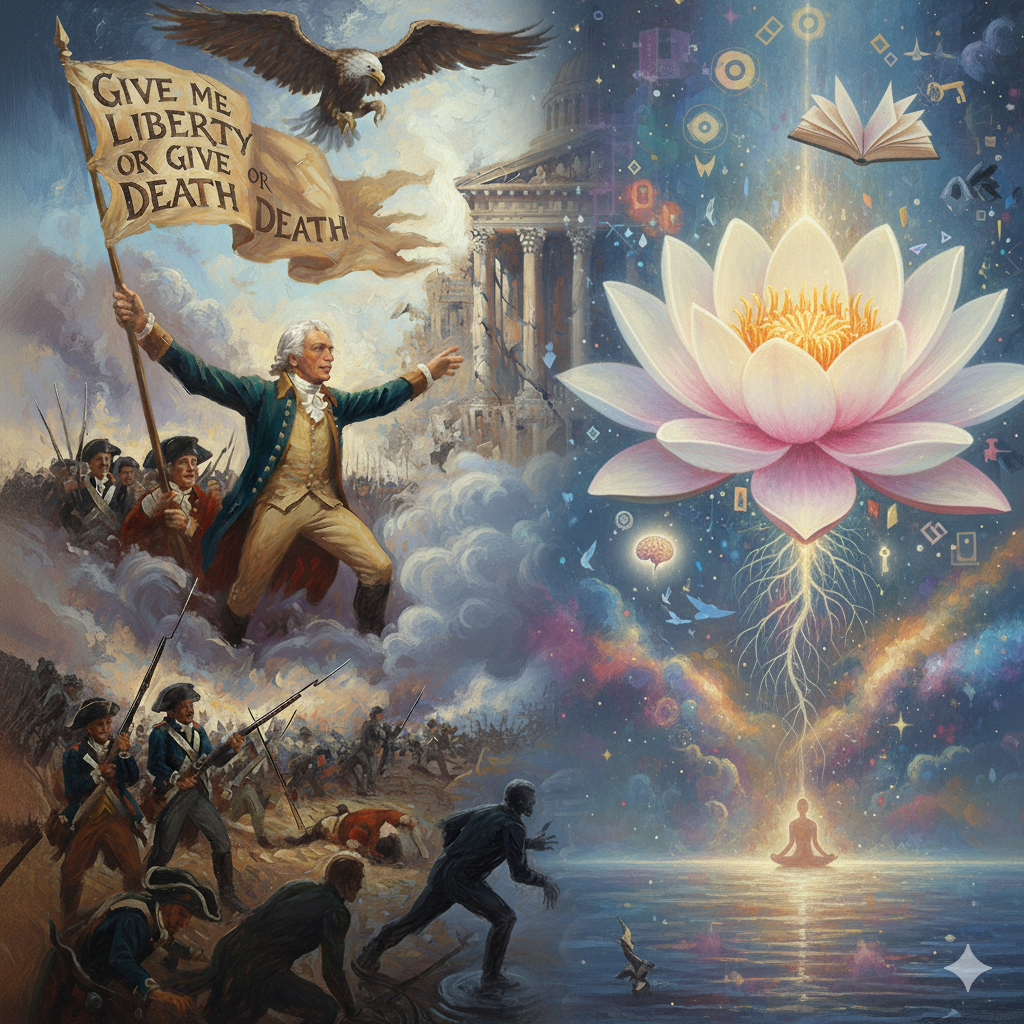Liberty is an Inside Job

We all want our freedoms. As an American (with a strong Aquarius signature in my astrological chart), I value freedom, whether it be free speech, freedom of thought, or a freedom from any kind of tyranny—mental, emotional, physical, systemic, self-imposed, externally imposed.
As a graduate student in clinical mental health, we study different societies views of freedom to apply a multicultural lens as one must understand a client’s cultural context to help the client.
There are more collectivist societies like Japan, who value taking care of the elderly, with young and old mixing, and taking care of one’s parents in their old age. Scandinavian cultures have a socialistic approach to healthcare but let free trade policies power their economy—socialistic in some ways, laissez faire in others.
In America, we value liberty above all else; we’ve fought for our independence as a nation from England's monarchy and developed our own self-governance called the Constitution and the Bill of Rights; the original settlers came over in search of religious freedom. Black people fought for freedom from slavery and later equal rights. Women fought for the right to vote and equal opportunity. Native Americans fought for their way of life.
“Give me liberty or give me death!” - Patrick Henry (1775, Richmond Virginia)
America celebrates itself as a free nation thanks to our rule of law; however, within freedom are hidden oppressors such as the debasement of currency, insurmountable health care costs, corruption in our political system. The appearance of freedom can be highly deceiving. And of course, it’s always relative. The truth is always complex in a society rife with apparent contradictions.
Looking beyond our cultural construct known as society, we realize that freedom is an energetic choice, a mental state, a conscious choice. When people stand up for their freedom, it starts from within, from their internal sense of sovereignty. We think of Abraham Lincoln, Martin Luther King Jr., Rosa Parks.
The founder of Telegram in an interview with Tucker Carlson said he hadn’t bought a house or other tangible assets because it takes away from his freedom. For him, freedom is mental, and the choice of where he spends his energy. This is a very intriguing definition which takes us back into the realm of our true, inherent sovereignty.
We all must individually examine the question, what is freedom to me? Is it saying no to some aspect of the current system? Is it to practice one's own spiritual or religious views? Is it leaving an oppressive relationship? Is it freeing yourself from societal confines? Or is your own internal voice oppressing you? Are you willing to die (an ego death or a real death) to maintain what’s most precious to you?
Through the psychological process of internalization, sometimes external oppressors become our internal oppressors. It’s up to us to examine ourselves and decipher our true beliefs from those we have internalized from others or from society.
Soul-Prompt: What feels oppressive in society? What views have I internalized that feels oppressive (from friends or society) and how can I mentally free myself from it?
